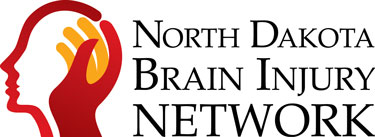Brain Health Tip Sheet
There is no cure for brain injury. However, there are activities that can impact your recovery. Your brain and body are a team. They help each other heal. When you care for your body, you're helping your brain too. Here are some ways to prioritize your brain health.
Physical Exercise
 Engage in 30 minutes of daily cardiovascular exercise to increase blood flow to the brain. Exercises
with friends and family are great ways to add social support to your routine.
Engage in 30 minutes of daily cardiovascular exercise to increase blood flow to the brain. Exercises
with friends and family are great ways to add social support to your routine.
Healthy Diet
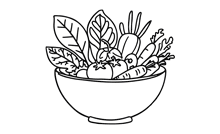 Fuel your brain with a balanced diet rich in fruits, vegetables, whole grains, and lean proteins. Consider
the Mediterranean diet, known for its brain-healthy properties. A Mediterranean diet consists of fruits and
vegetables, legumes and nuts, olives and olive oil, fish high in omega-3 fatty acids (like salmon), very
little red meat, and avoiding ultra-processed foods.
Fuel your brain with a balanced diet rich in fruits, vegetables, whole grains, and lean proteins. Consider
the Mediterranean diet, known for its brain-healthy properties. A Mediterranean diet consists of fruits and
vegetables, legumes and nuts, olives and olive oil, fish high in omega-3 fatty acids (like salmon), very
little red meat, and avoiding ultra-processed foods.
Sleep
 Aim for 7-9 hours of restful sleep each night to allow your brain and body to repair and recover. Establish
a relaxing bedtime routine and create a sleep-friendly environment. See a doctor if you're having trouble
sleeping. Seek evaluation for sleep apnea if you snore or gasp for air.
Aim for 7-9 hours of restful sleep each night to allow your brain and body to repair and recover. Establish
a relaxing bedtime routine and create a sleep-friendly environment. See a doctor if you're having trouble
sleeping. Seek evaluation for sleep apnea if you snore or gasp for air.
Omega-3 Supplementation
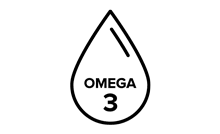 Omega-3 fatty acids (fish-oil) help support brain health. Search "Omega-3 Protocol Brain Health"
or consult your doctor.
Omega-3 fatty acids (fish-oil) help support brain health. Search "Omega-3 Protocol Brain Health"
or consult your doctor.
Exercise Your Brain
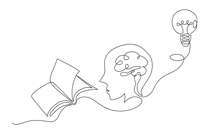 Just like your body needs exercise, your brain needs mental exercise. Engaging the brain helps it stay
active. Challenge your mind with activities such as chess, a hobby that involves thinking and
problem-solving (building new furniture), crossword puzzles, Sudoku, or card/board games.
Just like your body needs exercise, your brain needs mental exercise. Engaging the brain helps it stay
active. Challenge your mind with activities such as chess, a hobby that involves thinking and
problem-solving (building new furniture), crossword puzzles, Sudoku, or card/board games.
Limit Alcohol and Avoid Smoking/Drugs
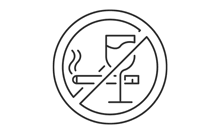 Drugs and alcohol can have a negative effect on the injured brain and can limit the ability to recover.
Drugs and alcohol impair judgment and can make emotional problems harder to manage.
Drugs and alcohol can have a negative effect on the injured brain and can limit the ability to recover.
Drugs and alcohol impair judgment and can make emotional problems harder to manage.
Manage Stress
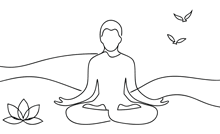 Practice stress-reducing activities like mindfulness or meditation. Try "box breathing" or "4-7-8
breathing." Sun exposure, music, and nature walks are also great tools for mood stabilization.
Practice stress-reducing activities like mindfulness or meditation. Try "box breathing" or "4-7-8
breathing." Sun exposure, music, and nature walks are also great tools for mood stabilization.
Stay Socially Active
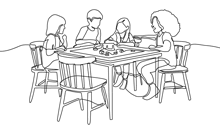 Maintain social connections and engage in conversations and activities with others.
Maintain social connections and engage in conversations and activities with others.
Protect Your Head
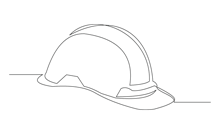 Avoid dangerous activities and always wear a helmet when warranted.
Avoid dangerous activities and always wear a helmet when warranted.
